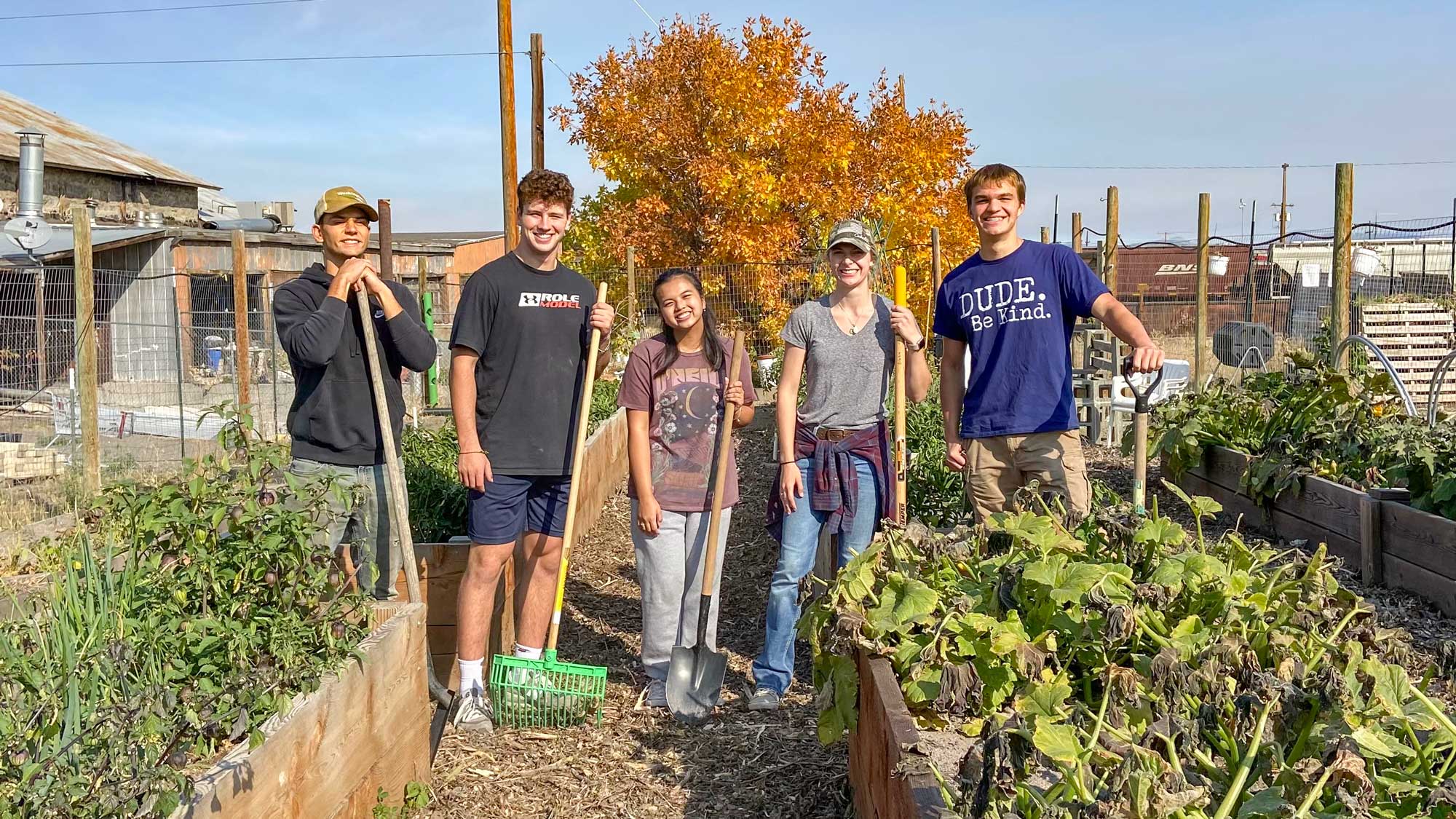What is Service-Learning?
Service-learning is a pedagogy that employs community service to improve students' understanding of course content and to meet important needs in local communities. Along with readings from textbooks and other sources, instructors integrate service with ongoing reflection as an assignment that contributes to the students' understanding of the subject. In this manner service can deepen students' understanding of the ideas and topics addressed in the class and in assigned readings.
Service-Learning and Catholic Social Teaching
Catholic Social Teaching "is a rich treasure of wisdom about building a just society and living lives of holiness amidst the challenges of modern society" (United States Catholic Bishops, "Seven Themes of Catholic Social Teaching"). The U.S. Catholic Bishops have summarized the main principles of Catholic Social Teaching as (1) the life and dignity of the human person; (2) the call to family, community, and participation; (3) the protection of rights and meeting responsibilities; (4) the option for the poor and vulnerable; (5) the dignity of work and the rights of workers; (6) solidarity; and (7) care for God's creation. One of the purposes of Catholic Social Teaching is to help people form their consciences in order to embrace more fully their responsibilities to shape the moral character of our society. As such, it offers useful objectives to guide the learning outcomes of a service-learning course, particularly its focus on the inherent dignity of all people.
Catholic Relief Services (CRS) is the international arm of the Catholic Church's social justice efforts. It has helpful information for faculty.
Service-Learning and the Liberal Arts
The goal of a liberal arts education is to promote the social merits of civic engagement, active citizenship, and personal responsibility. As blessed John Henry Newman writes of university training, a liberal arts education "is the great ordinary means to a great but ordinary end; it aims at raising the intellectual tone of society, at cultivating the public mind, at purifying the national taste, at supplying true principles to popular enthusiasm and fixed aims to popular aspiration; at giving enlargement and sobriety to the idea of the age, at facilitating the exercise of political power and refining the intercourse of private life" (Newman, The Idea of a University, p. 124). Service-learning within a liberal arts setting has the capacity to reinforce, in a powerful way, the role of service to the local community as a civic virtue.
Important Links on Service-learning
Sample Service-Learning Syllabi
Important Links on Catholic Social Teaching

